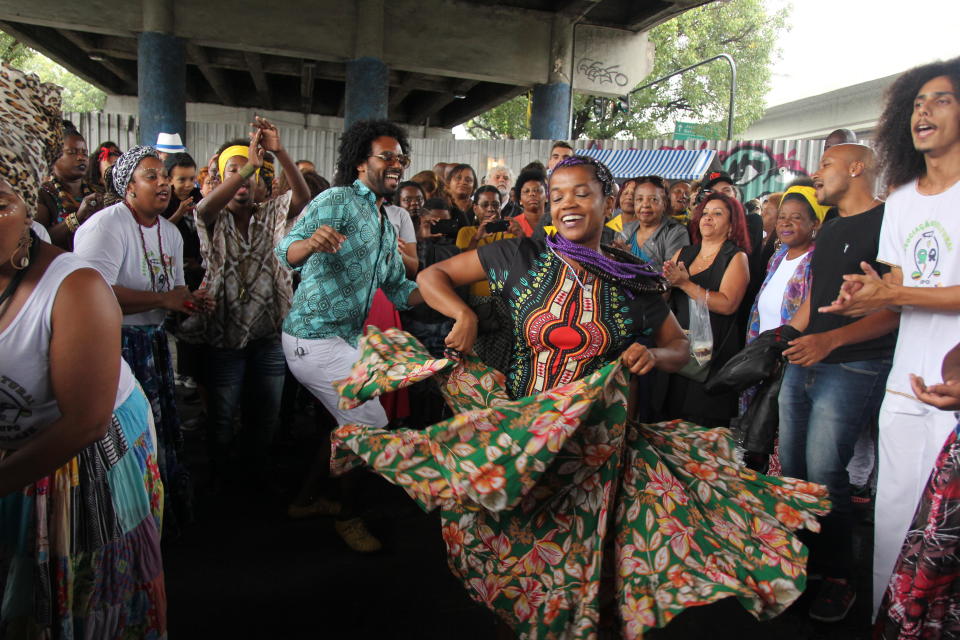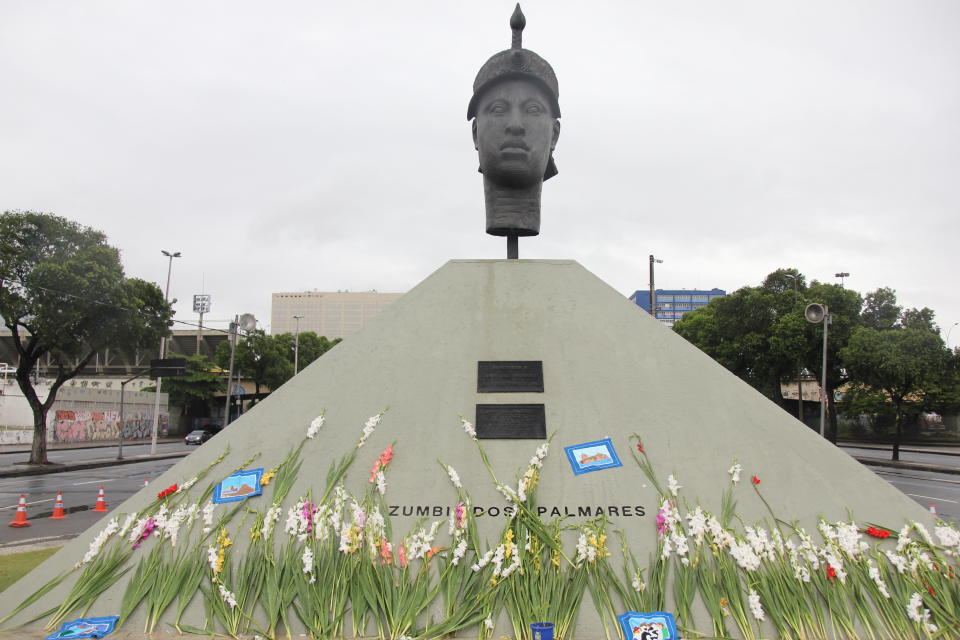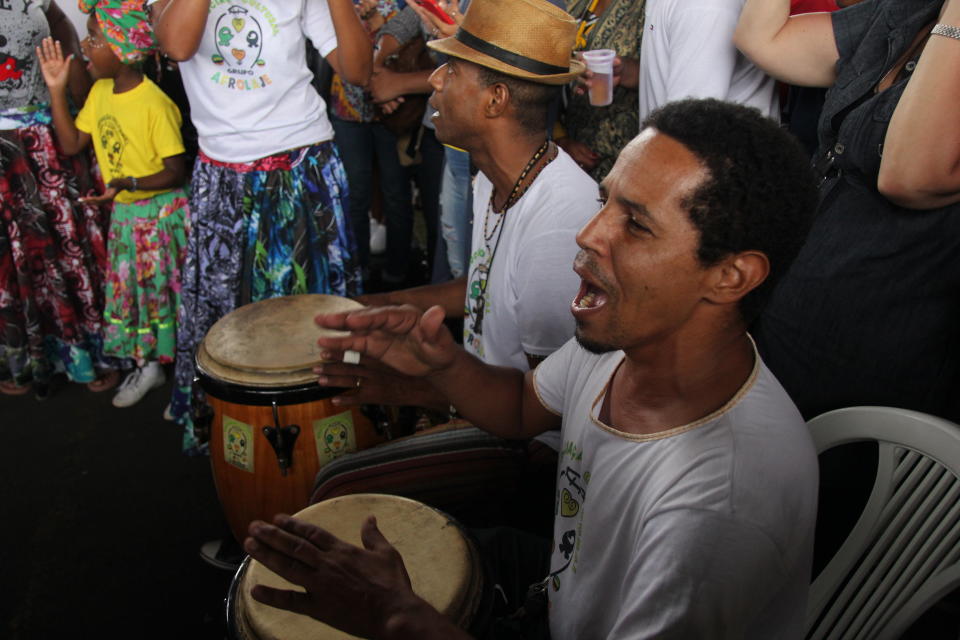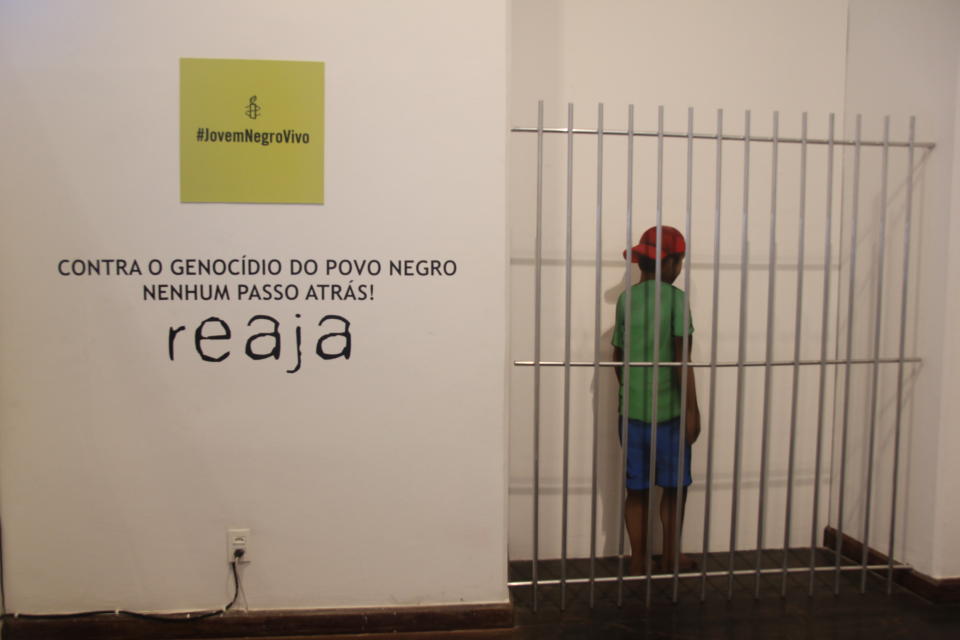Brazil’s Deadly School Shooting Sparks A Familiar Gun Debate
BRASÍLIA ― One of the deadliest shootings in Brazil’s history sparked a fresh debate over gun rights this week, deepening political fault lines that the U.S. firearms lobby helped form.
Just hours after two young men killed 10 people and injured 17 at their former school in the quiet São Paulo suburb of Suzano on Wednesday, a São Paulo lawmaker from President Jair Bolsonaro’s far-right Social Liberal Party called for arming teachers.
“As long as the guns are outlawed, only the outlaws will have guns,” tweeted Sen. Major Olímpio, a high-ranking party official and former police officer whose political influence has increased over the past few months.
The remark echoed a familiar drumbeat from the right-wing coalition that propelled Bolsonaro to victory last year.
Brazil’s influential and arch-conservative Bullet Caucus, a collection of congressional lawmakers to which Bolsonaro belonged during his nearly three decades in the legislature, threw its weight behind Bolsonaro as he campaigned on a hard-line law-and-order platform also calling to repeal Brazil’s most restrictive gun laws.
That included the Disarmament Statute, a 2003 law that makes it difficult for most civilians to legally purchase or own a firearm. Bolsonaro signed a decree in January easing the restriction.
The mass shootings that have become rote in American schools are rare in Brazil, though gun violence is common:
There were nearly 64,000 homicides committed here in 2017, according to government figures, and most tend to involve guns. In 2016, for instance, Brazil suffered more than 40,000 gun deaths — making it the only country in the world to have more gun deaths than the United States. The violence is unevenly distributed: More than three-quarters of annual victims of homicides are black
To hard-liners like Bolsonaro and his allies, the answer to this problem mirrors the solution offered by conservatives in the United States: Brazil needs fewer restrictions on guns, they say, not more.
And a movement that has taken its rhetorical, strategic and political cues directly from the playbook of the U.S. gun lobby and the National Rifle Association ― which has worked closely with pro-gun advocates in Brazil for more than a decade ― knew exactly how to respond to a mass shooting at a school with students ranging from elementary to high schoolers.
Arm teachers. Expand gun rights. Give people guns, don’t take them away.
“Another tragedy involving a minor that attests to the failure of the ill-fated disarmament statute,” Flávio Bolsonaro, the president’s son and a São Paulo senator, tweeted.

The immediate response horrified members of the Brazilian opposition.
Sen. Randolfe Rodrigues, the center-left leader from the northern state of Amapá, scoffed at the Olímpio’s “outlaws” statement, tweeting that the “massacre could have been bigger” if it turned into a volley of shots between teachers and former students.
At his office on Thursday, Rodrigues held up his phone to show a video on Instagram in which Bolsonaro, holding a young girl, forms a pistol with his fingers and grins while instructing the child to do the same.
“One evil feeds another evil,” Rodrigues told HuffPost in a wide-ranging interview. “If you create the idea of fundamentalism and nationalism and spread hate, people stop loving art and stop loving sports and start loving guns.”
He added: “That evil is what Bolsonaro is feeding Brazilian society now.”
Alessandro Molon, the opposition leader in the lower house of Brazil’s bicameral legislature representing the Brazilian Socialist Party, introduced legislation last month to nullify Bolsonaro’s decree.
“More guns in circulation leads to more tragedies like the one we unfortunately experienced this week,” Molon told HuffPost via WhatsApp. “Restrictive gun policy means less innocent deaths.”
Rodrigo Maia, an influential congressman whose party is a part of Bolsonaro’s governing coalition, swatted down the idea that the shooting could serve as justification for easing gun laws.
“I hope that some don’t try to defend the idea that if only the teachers had been armed, the problem would have been resolved,” Maia said Wednesday, according to AP reports. “For the love of God.”
That the debate in Brazil sounds so familiar is not an accident ― rather, it is the result of years of collaboration between the United States’ powerful gun lobby and allies it has found and cultivated in South America’s largest nation.
The National Rifle Association has long taken an active interest in Brazil, which is home to Taurus International, one of the world’s leading manufacturers of revolvers. In 2003, NRA lobbyists began working alongside Brazilian gun rights groups in an unsuccessful effort to prevent passage of the Disarmament Statute. Two years later, the NRA helped defeat a national ballot referendum that would have banned firearm and ammunition sales with a public lobbying campaign that helped flip polling that had once shown most Brazilians in favor of the ban.
“We view Brazil as the opening salvo for the global gun control movement. If gun control proponents succeed in Brazil, America will be next,” an NRA spokesperson said at the time.
The NRA did not respond to a request for comment on Thursday about its work in Brazil. But it has expanded its global advocacy efforts over the last five years, and its efforts in Brazil have included developing public education campaigns based on its efforts in the United States. Brazilian pro-gun advocates now talk about their God-given rights to own guns and the need for firearms to promote self-defense ― the same talking points as their U.S. counterparts.
“Guns are our guarantee of freedom,” Bolsonaro said during a campaign stop last year, according to Bloomberg. His son Carlos, a Rio de Janeiro city councilman, has posted online that “The only way to stop a bad guy with a gun is a good guy with a gun.”
That rhetoric, along with sharp spikes in violent crime in recent years, has in turn increased the appetite for gun ownership among Brazilians. In 2004, the year after the disarmament statute was approved, Brazil’s Federal Police received roughly 4,000 permit applications for legal gun purchases, said Felippe Angeli, the advocacy director for the Institute of Peace, a São Paulo-based think tank. Last year, the Federal Police issued nearly 50,000 such permits.
“Together with the rise of Bolsonaro and right-wing groups, the interest in gun ownership has increased,” Angeli told HuffPost in January after Bolsonaro issued his gun decree. “This is linked to the political polarization we have in Brazil, and the narratives that are very similar to the NRA’s and the gun discussion in the U.S.”

The school shooting this week also showed disturbing links to U.S. gun culture. Citing preliminary police investigations, TV Globo reported that the shooters studied U.S. mass shootings, including the 1999 Columbine school shooting that shook Americans much as Wednesday’s massacre in São Paulo has rattled Brazil.
Bolsonaro offered his condolences to the victims and their families, and has thus far avoided joining some of his congressional allies in using the tragedy to advance his pro-gun cause. But with his presidency off to a turbulent start that has angered even some of his most fervent conservative supporters, it is unlikely that he will abandon his support for legislation that would expand on his decree and repeal parts, if not all, of the disarmament statute’s gun restrictions.
There are nearly 650,000 legally registered guns in Brazil, according to Federal Police data cited by Reuters, while the Justice Ministry has estimated that there are more than 8 million illegal weapons circulating across the country.
Experts have warned that any measure that increases access to guns and the number of guns overall will only lead to more bloodshed, whether it takes the form of mass school shootings or the everyday gun violence that grips the country.
“There is a scientific consensus that the rise of guns in circulation gets you a rise in violent crime,” Angeli said in January. “There will be more deaths in a country where, already, the homicide rates are unbearable.”
Love HuffPost? Become a founding member of HuffPost Plus today.
Related Coverage
Jair Bolsonaro And The Violent Chaos Of Brazil's Presidential Election
Brazil Elects Far-Right Authoritarian Jair Bolsonaro As President
How Police Violence Paves The Way To Authoritarianism
Also on HuffPost






This article originally appeared on HuffPost.

